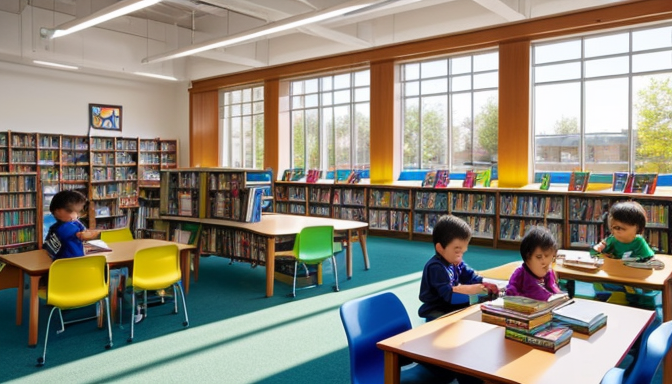Have you ever wondered what happens to your beloved books after you donate them? It’s a journey filled with hope and purpose! When you hand over that stack of novels, you’re not just clearing space on your shelf; you’re launching a mission to spread knowledge and joy. Your books embark on an adventure that transforms lives, enriches communities, and even benefits the planet.
The life cycle of donated books begins the moment you drop them off at a local charity, library, or book drive. These organizations have a structured donation process that includes sorting, categorizing, and distributing the books. Many times, volunteers work tirelessly to ensure that each book finds its way to someone who will cherish it. But it doesn’t stop there! Some books travel to remote areas where access to literature is limited, making a significant impact.
As your books find new homes, they become tools for education and literacy. Imagine a child in a small town, flipping through the pages of a story that was once on your shelf! Donated books can spark creativity, inspire dreams, and even improve overall well-being. In a world where knowledge is power, your contribution is a stepping stone toward a brighter future for many.
So next time you think about donating books, remember: you’re not just giving away items; you’re sharing a piece of yourself and making a difference in the lives of others. Isn’t that a beautiful thought?
The Donation Process
Understanding the donation process is essential for anyone looking to make a positive impact through their old books. When you decide to part with your beloved novels or textbooks, the journey begins with a simple act of generosity. First, you might drop them off at a local charity, library, or community center. But have you ever wondered what happens next? The path of your donated books is fascinating and filled with purpose!
Once collected, these books are often sorted by dedicated volunteers or staff members. They assess the condition of each book, ensuring only those in good shape make it to the next stage. This sorting process is crucial as it determines the book’s future. Some will be placed on shelves for public access, while others might be sold to raise funds for the organization. It’s like a book audition, where only the best get to shine!
Moreover, many organizations utilize online platforms to reach a broader audience. For instance, they may list available books on their websites or social media, making it easier for people in need to find them. This digital approach not only widens the reach but also connects communities in unexpected ways. Imagine a student in a rural area receiving a textbook that could change their educational journey, all thanks to your donation!
In summary, the donation process is more than just giving away books; it’s a chain reaction that fosters community growth and promotes literacy. So, the next time you donate, remember that your books are embarking on an adventure that could transform lives!

Impact on Communities
Donated books are not just stacks of paper; they are bridges connecting people to knowledge and opportunities. Imagine a child in a small town, eyes wide with curiosity, discovering the world through the pages of a donated storybook. This is the magic that happens when books are shared. They serve as tools for empowerment, fostering literacy and education in communities that may lack access to resources.
When we think about the impact of donated books, it’s essential to recognize the ripple effect they create. For instance, community centers and libraries often become hubs of activity, where individuals gather to learn, share ideas, and grow together. The presence of books can ignite a passion for reading and inspire lifelong learning. In fact, studies have shown that access to books can significantly improve educational outcomes, particularly in underserved areas.
Moreover, the benefits extend beyond just education. Donated books can play a crucial role in mental and emotional well-being. They provide an escape, a way to explore new worlds, and a chance to connect with others through shared stories. In many cases,
- Book clubs
- Reading programs
- Literacy workshops
are formed around these donations, creating a sense of community and belonging.
In conclusion, the impact of donated books is profound. They not only enrich individual lives but also strengthen the fabric of entire communities, making them more resilient, educated, and connected. So, the next time you donate a book, remember, you’re not just giving away a book; you’re opening doors to endless possibilities.
Frequently Asked Questions
- What happens to my donated books?
Your donated books embark on an incredible journey! They are first collected by various organizations, sorted, and then distributed to libraries, schools, and community centers where they can make a real difference.
- How can I donate my books?
Donating is super easy! You can drop off your books at local donation centers, participate in book drives, or even ship them to organizations that accept book donations. Just make sure they’re in good condition!
- What types of books are most needed?
While all books are appreciated, children’s books, educational texts, and novels that promote diversity are often in high demand. These resources help foster literacy and learning in communities!
- Can I donate damaged books?
Generally, it’s best to avoid donating damaged books. However, some organizations may accept them for recycling or repair. Always check with the donation center beforehand!
- How do donated books impact communities?
Donated books can significantly enhance education and literacy, providing access to knowledge and fostering a love for reading. They serve as valuable resources that uplift and unite communities.